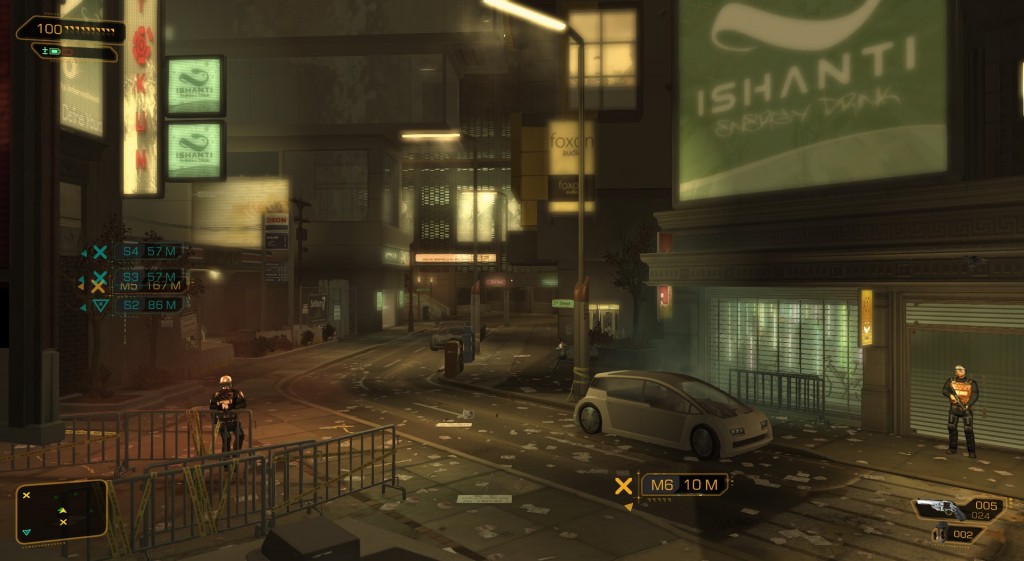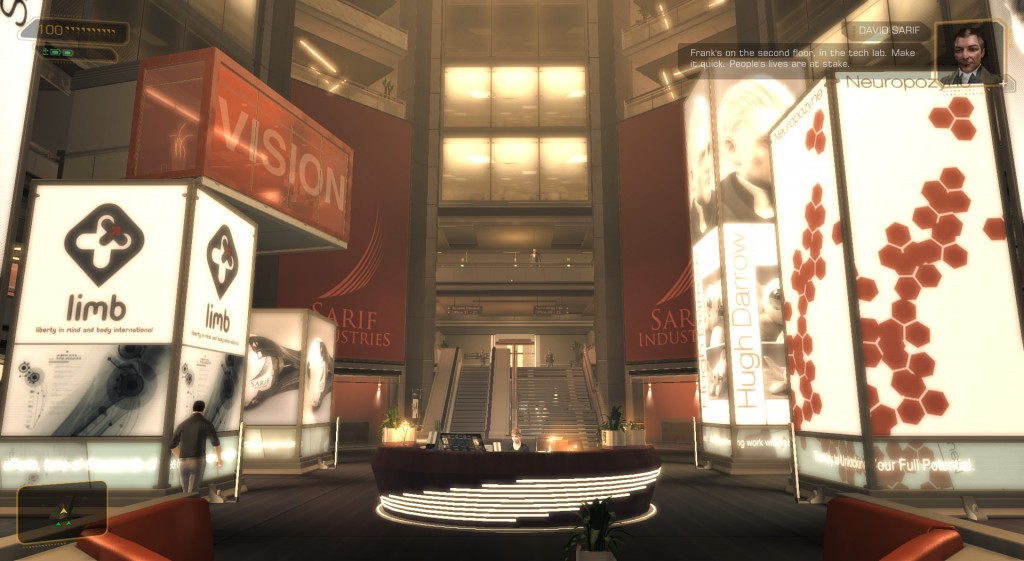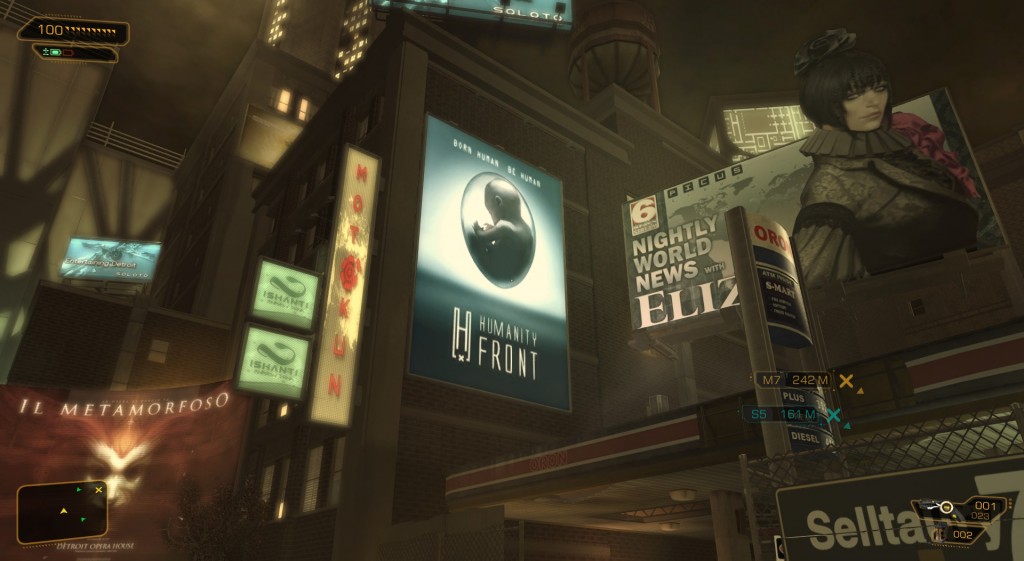- Bleak, clever cyberpunk: the world of Deus Ex: Human Revolution
A society consists of:
A handful of ultra-powerful ultra-rich;
Criminal lords who control everything not controlled by the ultra-rich;
Police whose only principle of operation is maintenance of the status quo;
Hordes of poor people starving in the streets;
Absolutely no middle class whatsoever.
Nonetheless, the society manages to remain at a high technological level.
– The Grand List of Overused Science Fiction Clichés
At first glance, one might think that Deus Ex: Human Revolution, last year’s cyberpunk action-RPG from Square Enix, falls into the above trap. A walk around its first hub area (which I’ve just completed), the Detroit of 2027, appears to tick every box. The game’s first act takes place over a single evening, so the sky is black and forbidding. The streets are filthy. Graffiti is everywhere. The beat cops all wear riot gear. The outside world appears no better: newspapers refer to an ongoing “Australian civil war”. At times, the exaggerated dystopia shades into silliness: why are middle-class characters living in the same garbage-ridden slum as the local arms dealer?

But dig deeper, and you’ll find more to Human Revolution than Generic Science-Fiction Dystopia. This is a world defined, above all, by one social issue, one conflict – transhumanism, in the form of cybernetic augmentation. This raises several questions. First, there’s the usual debate about the morality of humans “playing God”, evident in conversations with other characters, in product blurbs from cybernetics manufacturer Sarif Industries and in radio broadcasts from anti-augmentation terrorists Purity First. It’s done well, it’s done plausibly – the pro/anti-augmentation slogans would fit right into today’s culture wars – but it’s also what we’d expect from a work that tackles the topic. In other words, well-executed but par for the course. If you are already familiar with this debate, from other works of science fiction, then Human Revolution won’t do much to sway your mind.
The game’s real strength isn’t what it has to say about transhumanism in general – it’s what it has to say about transhumanism in this particular world, with this particular technology and set of trade-offs. The advantages to cybernetic augmentation are obvious – you get to play with them. Want to jump like an Olympian’s dream, fling dumpsters and vending machines as if they were tissue-paper, see through walls, turn yourself temporarily invisible? These are merely some of the enhancements available to hero Adam Jensen, and making use of them is what Human Revolution’s gameplay is all about. More prosaically, cybernetics also fill the role of real-world prosthetics – allowing people who’ve been injured or maimed to live better lives. These positives are real.

But there is a heavy price. Cyborgs don’t lose their souls. They don’t become evil or insane or deranged. They don’t go on homicidal rampages. The game is not so crude as that. They do become dependent on an expensive drug, “neuropozyne”, to prevent tissue rejection and eventual agonising death. What happens when a cyborg runs out of neuropozyne, from the hints we’re given (and from this live-action trailer, in the form of a Purity First propaganda video) is not pretty – and there are “people” in Human Revolution, such as pimps looking for leverage over their girls, who’ll take advantage of that. This trade-off isn’t metaphysical, or moral, or airy-fairy and abstracted. This trade-off is grimly practical. Would you make it? Human Revolution’s appeal lies in its ability to make us ponder that question – and sympathise with those characters who didn’t get a choice.
Perhaps my single favourite visual in Human Revolution is a billboard advertising a new opera, “Il Metamorfoso” (see the bottom-left of the screenshot below). The game conveys so much meaning with that one simple little image. What is the “metamorphosis”? We don’t know, but given context and the curved, circuitry-like lines just visible in the ad, we can guess it’s augmentation. What is the opera’s take on it? The “Metamorfoso’s” demonic leer, and the way his hair flows into the sinister red background of the ad, speak volumes. Augmentation, the ad seems to tell us, is a deal with the devil. Revel in its power, but know it has consequences.

It’s that kind of clever touch that draws me to Human Revolution. This is no exercise in mindless nihilism. It’s a game whose creators put real thought into its bleak future, into art and aesthetic and concept – and then, as good science fiction writers should do, extrapolated the resulting possibilities, vile or otherwise. It’s a game that respects my intelligence, and I look forward to playing more.

One thought on “Bleak, clever cyberpunk: the world of Deus Ex: Human Revolution”